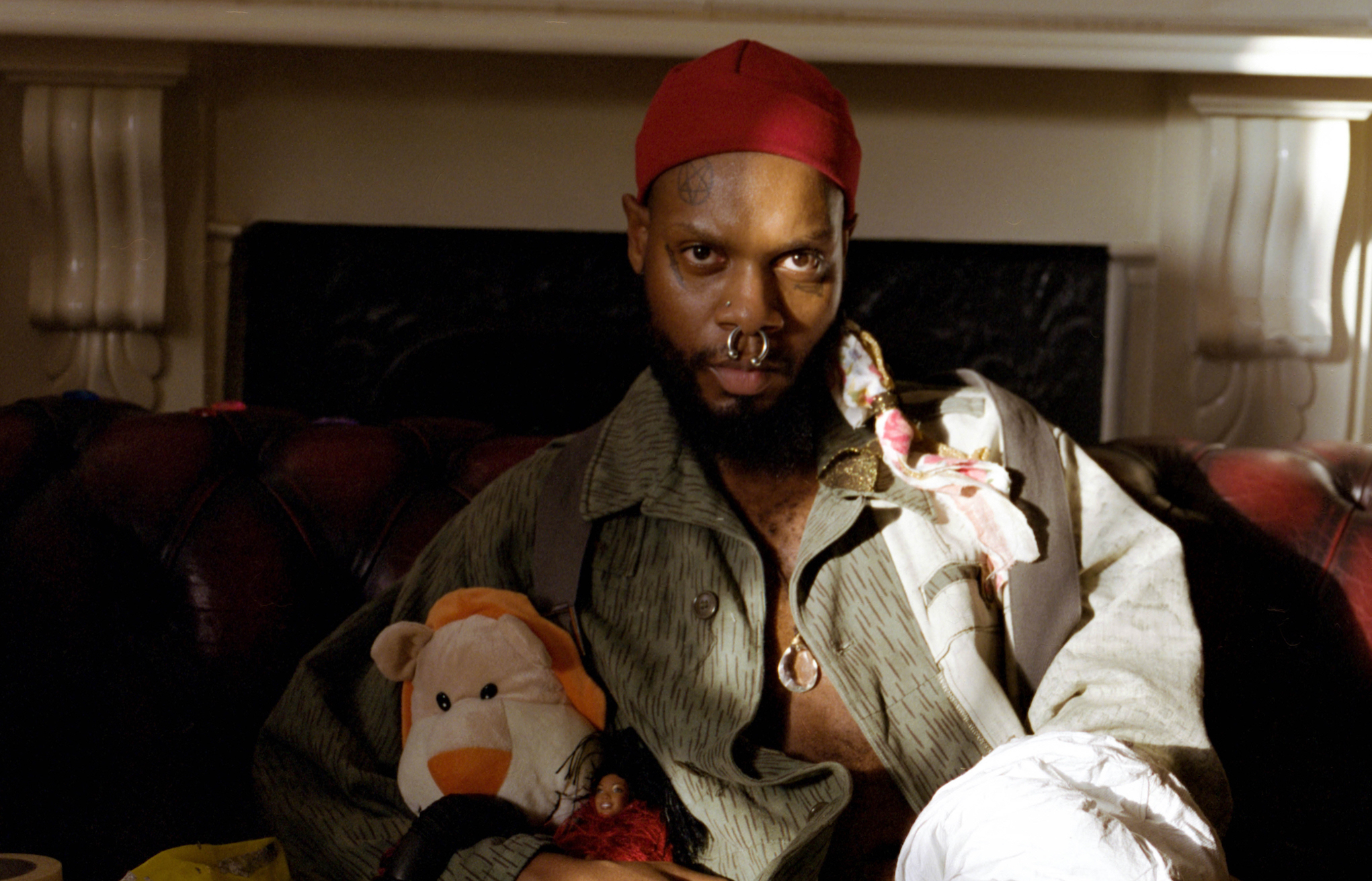Plenty of new acts are skyrocketing this year by riding the current of a pre-established style—trap, indie, throwback R&B—and there’s nothing at all wrong with that, but there should be a certain veneration reserved for the ones who weave a new web for themselves entirely. You know, a Prince, a Grace Jones, a Björk—the kind with bespoke genres of their own, the music being just one axle of a multi-sensory Gesamtkunstwerk experience. Josiah Wise, better known as serpentwithfeet, just released his debut album soil and is already sending himself toward that path, offering a musical, lyrical, cinematic, and sartorial repertoire that seems impossible to cultivate in the beginning stages. His speaking is as fluid as his singing, and without losing a morsel of mystique, he reveals how Josiah Wise became the serpent.
His breakout EP, blisters, ignited the Internet in 2016, as his naked beltings over The Haxan Cloak’s swelling ambient classical samples showcased a sound no one could liken to anything else. Come this year, surrounding a signing to Secretly Canadian and the release of soil, he’s already graced several magazine covers and announced a headlining North American tour for this coming summer. But for Wise, it’s not so sudden considering all the years he attended school for music, took private lessons, and put on experimental performances. “I think it’s important to start out with those shows where only five people come,” he says. “To feel like you’re fucking up at first. At some point you have to just stop asking for opinions and ask yourself, ‘What do I think?’ I always knew this was the only option for me. I just didn’t know how or when.”
Getting acquainted with Wise’s persona—his popstar vocal projection, his acrobatic music videos, his face tattoos, his gender-bending wardrobe—a certain fearlessness comes to mind. “I’m a black gay man. If I was to constantly think about how I’m a black gay man and how I’m not this country’s central narrative, I would go crazy,” he explains. “I’m not interested in the white heteronormative narrative. If I’m going to go outside in polka-dot briefs, knee-high boots, and boxing gloves, that’s standard for me that day.” With a look through his photos and appearances, that isn’t an exaggeration.
“At some point you have to just stop asking for opinions and ask yourself, ‘What do I think?’ I always knew this was the only option for me. I just didn’t know how or when.”
But that caliber of complete fearlessness wasn’t unremarkable for a gay black child in Baltimore, where Wise was born and raised. On how it grew in him, Wise profusely credits his mother: “I remember when she let me wear my water shoes with a tuxedo at church, and how I’d always wear one of her sparkly brooches in place of a tie. People would always say, ‘You shouldn’t dress a boy like that,’” he recounts. “She would just respond, ‘Why? He’s a child and I’m going to let him wear what he wants.’”
And style wasn’t all Wise took from his days in church—soil uses the classic gospel sound palette, fused with the electronic jolts of producers like Clams Casino and Katie Gately, as a cradle for his vivid tales of lovers both real and fictional. “I get to devote my life to him / I get to sing like the cherubim,” he chants on his song “cherubim,” reconciling the beauty in Christian imagery with queer freedom.
The intense, vibrant energy of soil sounds definitive of New York City, which he’s called home for several years now; but Wise insists that it’s one of the last places the record drew inspiration from. “The city [of New York] itself is not really a galvanizing place for me—I got all my nutrients from Baltimore. Baltimore isn’t Deep South, but it’s still the South, and I thrive on that sweetness,” he says. He also recalls the open roads and spaces of the heartland as his favorite experiences of the past year. “I had a beautiful time touring through the South. My tour manager knew that I liked swing sets, and he would always find the parks in different cities so I could swing every day before sound check,” he says. “The warmth I felt travelling through those spaces definitely made its way to soil.”
Though much of his sound is challenging and borderline avant-garde, Wise doesn’t consider himself an outlier to the pop world today. “When I think of my favorite artists today, like Frank Ocean, Beyoncé, and SZA, these are very mainstream artists, but we enter their world,” he says. And soil is no reprise of the symphonic labyrinth of blisters—it’s more beat-driven and accessible, yet simultaneously his most vulnerable work: “blisters was much more sensuous, but I wanted soil to be juicier and more grounded. I just had to make the clear decision with this that I didn’t want to be nebulous at all.” Despite his efforts to portray that earthliness, experiencing soil requires the listener to fully enter serpentwithfeet’s invented world. FL







